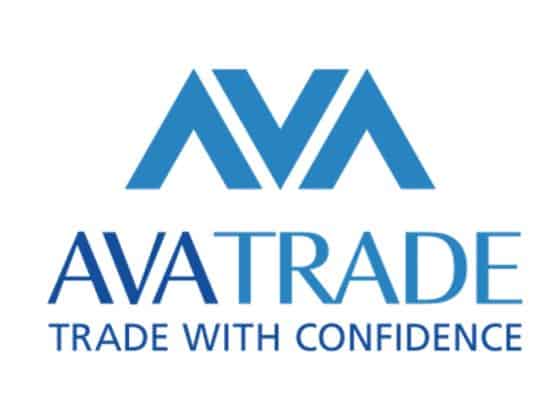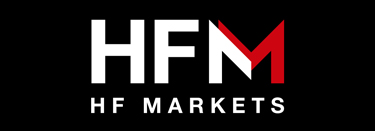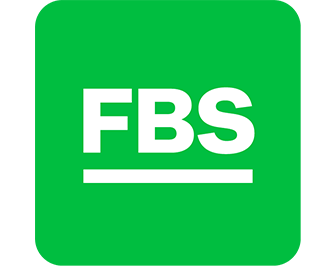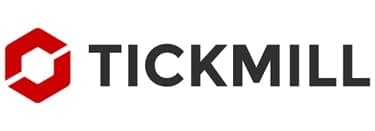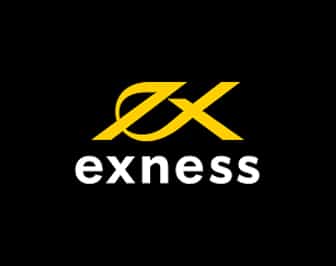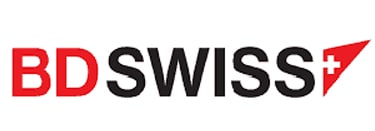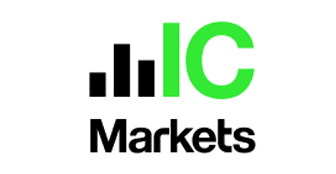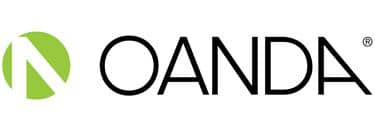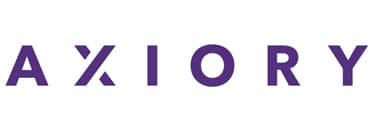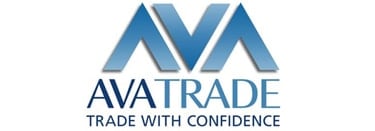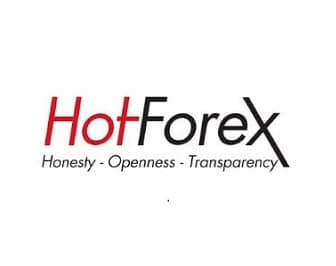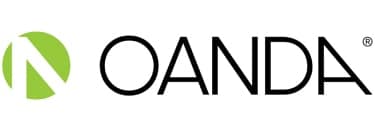
10 Scam and Fake Forex Brokers Rwandan Traders Should Avoid
The 10 Scam/Fake Forex Brokers in Rwanda revealed. We tested the Scam/Fake Forex Brokers for Rwandan Traders.
This is a complete guide to Scam/Fake Forex Brokers in Rwanda.
In this in-depth guide you’ll learn:
- What is a Scam/Fake Forex Broker?
- How to spot a scam/fake forex broker in Rwanda?
- What to do when you traded with a fake/scam forex broker?
- How to know how a fake forex broker looks?
- Which forex brokers are Blacklisted in Rwanda?
- What is an offshore forex broker?
- Which brokers are on the Rwandan scammer list?
- Can you trade with an unregulated broker?
And lots more…
So if you’re ready to go “all in” with the fake/scam forex brokers in Rwanda…
Let’s dive right in…
10 Best Forex Brokers in Rwanda for 2024
Rank
Broker
Review
Regulators
Min Deposit
Official Site
- Louis Schoeman
Scam Forex Brokers to Avoid
| 💰 Forex Broker | ❌Scam / ✔️Real |
| 1. Oracle FX | ❌ Scam |
| 2. Swiss Assets FX | ❌ Scam |
| 3. Broker XP | ❌ Scam |
| 4. 100XFX | ❌ Scam |
| 5. CT-Trade | ❌ Scam |
| 6. MarketGBP | ❌ Scam |
| 7. SolidCFD | ❌ Scam |
| 8. GCC Investing | ❌ Scam |
| 9. BRFX Trade | ❌ Scam |
| 10 MaxCFD | ❌ Scam |
10 Scam and Fake Forex Brokers in Rwanda (2024)
What is a Scam Forex Broker?
Scam brokers frequently make false promises like “earn $50 per day with a $250 investment” “generate 80% returns on profit signals” or “achieve a 96% success rate.” It’s important to recognize that these claims are fraudulent, regardless of whether they pertain to forex, CFDs, or binary options. Legitimate forex brokers should never guarantee specific returns, whether they are small or large.
1. Oracle FX

Overview
Oracle FX has been identified as a fraudulent broker and has been blocked by the Financial Markets Authority (FMA) in New Zealand. Numerous reports have been received by the market regulator regarding Oracle FX’s illicit activities.
New Zealand residents have reported instances of cold calling by the broker, promoting investment schemes that are nothing but scams. It is important to note that Oracle FX is not registered with any regulatory body. Clients from around the world should exercise caution and avoid any involvement with this entity.
2. Swiss Assets FX

Overview
According to the official website of Swiss Assets FX, the broker claims to be a regulated entity offering investment services. However, it has come to light that the broker’s claim of regulation and authorization through the Swiss Securities and Exchange Commission is false, as such a commission does not exist.
Swiss Assets FX has been providing financial services to traders globally without the required licensing. As a result, FINMA, the official market regulator in Switzerland, has issued a warning to both local and international traders regarding this broker. It is advised to exercise caution and avoid any engagement with Swiss Assets FX.
3. Broker XP

Overview
Broker XP is claimed to be owned and operated by Aviant Marketing Limited, an offshore entity registered in the Marshall Islands with a license from the Banking Commission of the Marshall Islands. Additionally, the website lists an additional license under M&A Mergers and Acquisitions Consultancy LP.
However, there is no verifiable evidence to support these claims, and the broker is known for engaging in cold calls and aggressive marketing tactics. They often attempt to persuade traders to deposit funds by promising unrealistic profits of thousands of dollars per month.
4. 100XFX

Overview
It is crucial to be aware that 100XFX is a fraudulent broker that has been identified on multiple lists of scam brokers. 100XFX claims to be headquartered in the United Kingdom but lacks valid registration or authorization. The broker is not regulated by the reputable Financial Conduct Authority (FCA) in the UK. Furthermore, its stated address in Saint Vincent and the Grenadines, a region known for accommodating scam brokers due to its lenient licensing requirements, raises further concerns about its legitimacy.
5. CT-Trade

Overview
CT-Trade has been identified as a clone company of Citibank Europe Plc, a well-known financial institution. CT-Trade falsely claims to be regulated, using the FCA license belonging to Citibank. It is important for global traders and investors to be aware of this and exercise caution by avoiding the use of this broker.
Multiple listings and warnings have been issued to inform individuals about the deceptive practices of CT-Trade. It is crucial to conduct thorough research and only engage with regulated brokers that hold legitimate licenses from reputable financial authorities.
6. MarketGBP

Overview
MarketGBP is operated by Silver Wolf, Ltd, an offshore company headquartered in the Marshall Islands. The broker claims to provide a diverse selection of financial instruments across various asset classes on its website. However, despite offering a UK-based telephone number, the broker cannot be reached using this contact information.
It is important to note that MarketGBP is listed on the warning list of the Financial Conduct Authority (FCA) as an unauthorized entity. The broker has been flagged for engaging in unsolicited marketing activities and targeting individuals unlawfully.
7. SolidCFD

Overview
SolidCFD is a fraudulent broker that appears on numerous warning lists. It is owned by LOK Marketing Limited and operates as an offshore broker registered in Vanuatu under the Vanuatu Financial Commission. However, it is important to note that the Vanuatu Financial Commission is not a trusted or stringent market regulator due to its low licensing requirements.
Rwandan traders are strongly advised to refrain from engaging with SolidCFD and to report any unsolicited contact from this broker. Given its fraudulent nature and lack of reputable regulation, it is in the best interest of traders to avoid any involvement with SolidCFD.
8. GCC Investing

Overview
GCC Investing is a forex broker based in Bulgaria and owned by GreenRiver OU in Estonia. It utilizes Mercure Services Limited, a payment processor registered in Saint Vincent and the Grenadines. However, it is important to note that the broker’s listing of telephone numbers in Britain, Germany, and Bulgaria raises suspicions, especially considering that it is not licensed in Europe.
Rwandan traders are strongly cautioned against engaging with GCC Investing and are advised to report any unsolicited contact from this broker. Given the lack of proper licensing and the suspicious nature of its operations, it is advisable to avoid any dealings with GCC Investing.
9. BRFX Trade

Overview
BRFX is an offshore broker registered in Saint Vincent and the Grenadines and owned by BR Consulting Group Ltd. It is important to note that this jurisdiction has been associated with many scam brokers in the past. Therefore, it is highly recommended that Rwandan traders thoroughly research and verify the legitimacy of BRFX before depositing any funds.
Rwandan traders are strongly advised to only engage with brokers that are well-regulated and possess reputable licenses such as those issued by FSCA (Financial Sector Conduct Authority), CySEC (Cyprus Securities and Exchange Commission), ASIC (Australian Securities and Investments Commission), FCA (Financial Conduct Authority), or other trustworthy regulatory bodies.
10. MaxCFD

Overview
MaxCFD is operated by Chemmi Holdings Limited and claims to be based in London, United Kingdom, according to its website. However, there is no evidence of regulation or a license number provided, and the broker’s regulatory status is not mentioned on the website.
It is important to note that MaxCFD is not listed as a regulated and authorized financial services provider on the register of the Financial Conduct Authority (FCA). Therefore, it is advised that Rwandan traders avoid engaging with this broker.
To ensure the safety of their funds and protect themselves from potential scams, Rwandan traders should prioritize trading with brokers that are properly regulated and authorized by reputable regulatory bodies. Performing thorough research and confirming the legitimacy of a broker’s regulatory status is crucial before making any investments.
Scam Brokers Overview

A broker serves as the intermediary between Rwandan forex traders and the financial markets. They facilitate or execute trades on behalf of the traders for every position opened on their trading platform.
Forex and CFD brokers generate revenue through various means, with the most common being spreads and commissions charged to the traders. Market maker brokers, in particular, benefit from their clients’ losses as they take the opposite side of the trades, providing liquidity and the assets that traders wish to buy.
While hundreds of legitimate brokers offer secure, fair, and transparent trading environments, there are individuals who pose as legitimate brokers with the intention of exploiting traders and profiting from their losses.
There are also malicious entities online that clone legitimate companies, creating websites that appear official to deceive traders. They may pretend to be licensed brokers and persuade unsuspecting, often inexperienced, traders to invest their funds.
Once these traders make a deposit and attempt to execute trades or withdraw their funds, the fraudulent broker will provide excuses and ultimately abscond with the clients’ deposits.
Unfortunately, these fraudulent activities have tarnished the reputation of the forex and CFD trading industry, leading many individuals to fear that all brokers are scams or that the entire industry is a Ponzi scheme.
The Forex Market and Regulation

Forex trading occurs through an online network of computers, rather than a centralized exchange like the stock market. This decentralized structure means that there is no single authority overseeing the entire forex market.
However, forex trading is subject to regulation by various global supervisory bodies in different countries. These regulatory bodies establish specific standards and regulations that brokers operating within their jurisdictions must comply with.
Regulations of this nature commonly enforce specific responsibilities on brokers, which encompass acquiring legitimate licenses and registration from the market regulatory authority, conducting routine financial audits, submitting financial statements, fostering transparent communication with clients, and guaranteeing the clear segregation of client funds from the broker’s own funds.
Every nation possesses its own market regulator tasked with formulating and enforcing the regulatory structure governing financial service providers. Prominent regulatory organizations comprise the Financial Conduct Authority (FCA) in the United Kingdom, the Financial Services Conduct Authority (FSCA) in South Africa, and the Cyprus Securities and Exchange Commission (CySEC) in Cyprus, among other notable entities.
Forex brokers have the opportunity to obtain multiple licenses and regulations in different countries. Reputable brokers, such as AvaTrade, IG Group, HFM, Exness, and others, hold various licenses and regulations globally. This allows them to operate in multiple jurisdictions and provides investors and traders with confidence that they are dealing with a legitimate and regulated business.
It is important for traders to prioritize working with regulated brokers as it helps mitigate risks, ensures the protection of investors’ interests, promotes market integrity, and fosters a fair and transparent trading environment.
How can Rwandan Traders Spot a scam or fake Forex Broker?

Rwandan traders can follow these steps to identify potential scams or fake forex brokers:
Regulation and Licensing:
Check if the broker is regulated by a reputable financial authority. Verify the provided regulatory information and cross-reference it with the official regulator’s website. Be cautious if the broker claims to be regulated but lacks verifiable evidence.
Research the Broker:
Conduct thorough research on the broker’s background and reputation. Look for information such as company history, client reviews, and any past regulatory actions or complaints. Be wary if credible information is lacking or if negative reviews and warnings are prevalent.
Transparent Operations:
Legitimate forex brokers are transparent about their operations. Ensure the broker provides clear and detailed information about their services, trading conditions, fees, and contact details. Be cautious if there is a lack of transparency or if important information is vague or undisclosed.
Contact Information and Support:
Legitimate brokers provide easily accessible contact information, including phone numbers, email addresses, and physical addresses. Verify the provided contact details and consider reaching out to their customer support to assess their responsiveness and professionalism. Be wary if the broker’s support is unresponsive or if the contact information seems suspicious.
Trading Platform and Tools:
Legitimate brokers offer reliable and robust trading platforms with advanced tools and features. Evaluate the broker’s trading platform for stability, functionality, and a user-friendly interface. Be cautious if the platform is unstable, outdated, or lacks essential trading features.
Unrealistic Promises and Guarantees:
Be cautious of brokers that make unrealistic promises of guaranteed profits, high returns, or risk-free trading. Forex trading involves inherent risks, and no legitimate broker can guarantee consistent profits or eliminate the possibility of losses.
Secure Payment Methods:
Legitimate brokers offer secure payment methods for deposits and withdrawals. Ensure the broker supports reputable payment options and implements encryption protocols to protect financial transactions. Be cautious if the broker insists on using unregulated or suspicious payment methods.
Educate Yourself:
Enhance your knowledge of forex trading to better identify potential scams. Learn about common scam tactics, such as fake account managers, Ponzi schemes, or unauthorized fund management services. Stay informed about the latest scam trends and warnings issued by financial regulators.
Verify Licenses and Certifications:
Some scammers may display fake licenses or certifications to appear legitimate. Take the time to verify the authenticity of any licenses or certifications claimed by the broker. Cross-check the license details with the official regulator’s website or contact the regulatory authority directly for verification.
Seek Recommendations and Advice:
Consult with experienced traders, join online trading communities, or participate in forums to seek recommendations and advice. Learn from the experiences of others and be cautious if multiple traders report negative experiences or suspicions regarding a particular broker.
Frequently Asked Questions
How can Rwandan Traders identify fraudulent schemes?
There are various warning signs that can help identify fraudulent brokers, including persistent and unsolicited marketing, false promises of guaranteed profits, difficulties encountered during the withdrawal process, absence of a company history or regulatory oversight, and more.
How can Rwandan Traders avoid forex scams?
By referring to a compilation of companies that are potentially promoted as fraudulent brokers, and consulting the websites of market regulators to access a roster of forex scam brokers, one can enhance their ability to identify suspicious entities operating in the market.
How can Rwandan Traders check the regulation of brokers?
For Rwandan traders, it is advisable to verify the regulatory status of a broker by consulting the market regulator of the specific region where the broker is headquartered. It’s important to note that Rwandan traders are not limited to using only Rwandan-based brokers. They have the freedom to choose from a wide range of brokers that cater to Rwandan traders. However, this freedom also poses a challenge when it comes to identifying and filtering out potential scam brokers.
Is Forex Trading Legal in Rwanda?
Indeed, forex trading is legally permitted in Rwanda. Nonetheless, it is crucial for Rwandan forex traders to exercise caution and ensure that they engage with legitimate and well-regulated entities in the market.
Why should Rwandan Traders only use regulated brokers?
Engaging with legitimate and well-regulated entities in forex trading ensures the protection of funds for Rwandan traders. Additionally, it provides the assurance that in the event of any issues, the market regulator can effectively address and resolve them.
Table of Contents






